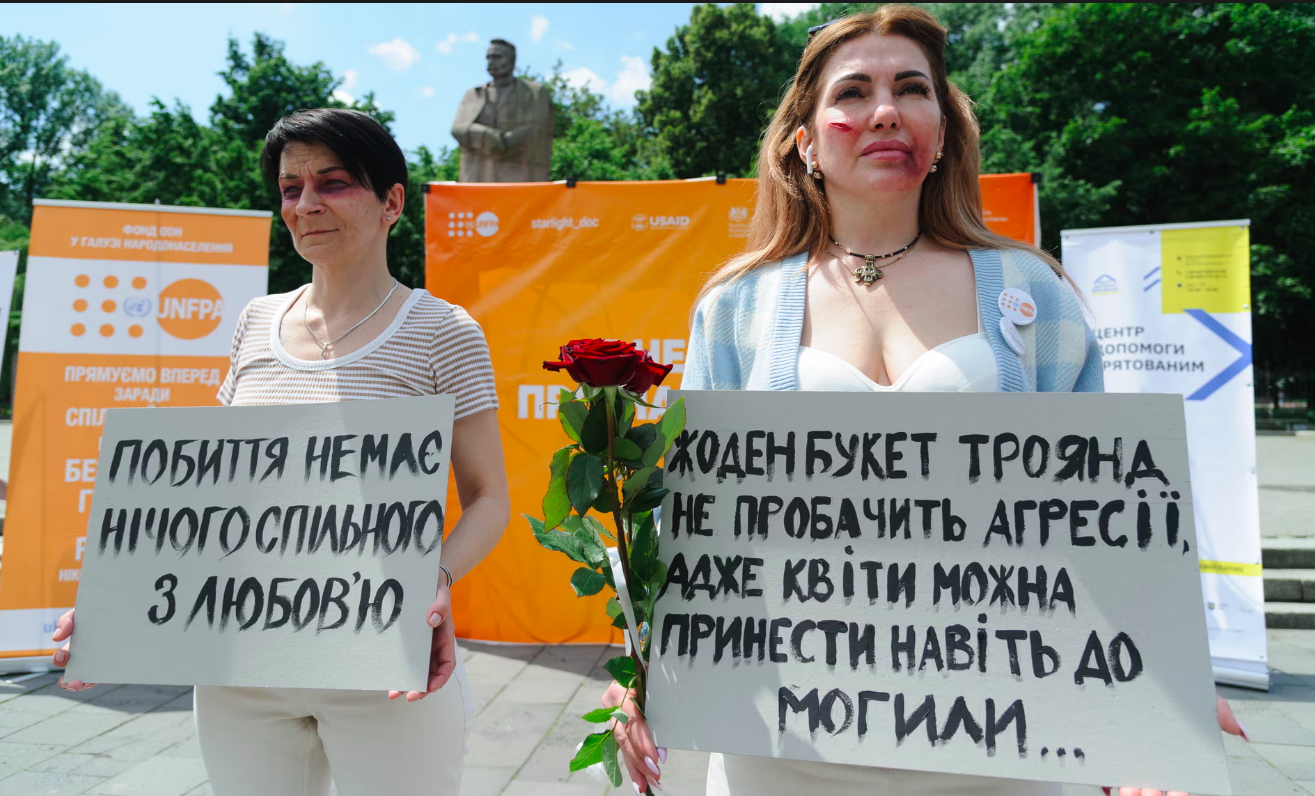n May this year, Lubov Nedoriz, a volunteer social worker, received a call from the police in Pervomaiskyi, a town in the Ukrainian province of Kharkiv. The Russians had just launched an offensive in the region that continues today.
The police told her about a 30-year-old man who had recently returned from the frontline in Kharkiv and attacked his mother, who was now worried about his violent and angry behaviour.
“He used to be a good son, the mother later told me,” says Nedoriz. He had had a university education and was “very kind and loved his girlfriend”, but that changed after he had been sent to the frontline in Kharkiv.
Women are less likely to complain when it [domestic violence] involves war veterans
Ivanna Kovalchuk
“He became angry a lot, started listening to rock music and fought with his girlfriend. When his mother had tried to intervene, he severely beat her up.”
Nedoriz, who trained as a criminologist before the war, says such calls for help from law enforcement and women are becoming increasingly common.
With Russia’s war against Ukraine in its third year, many women in the country are now fighting their own battle, as the number of domestic violence cases increases significantly.
According to Ukraine’s internal affairs ministry, police registered more than 291,000 cases of domestic violence across the country in 2023 – a 20% increase on the previous year, when the Russian invasion began.

Experts and social workers expect these figures to rise again in 2024. In the first two months of this year, there was a 56% increase in complaints of domestic violence that were registered as criminal offences in Ukraine.
The reported cases are just “the tip of the iceberg” says Massimo Diana, from the UN’s Population Fund (UNFPA), which monitors gender-based violence.
“Numbers at times do not tell the full story,” he says. “[They] are only indicative of the number of filed reports. We need to put the numbers into the larger context to understand the problem.”
Read full story on the Guardian
